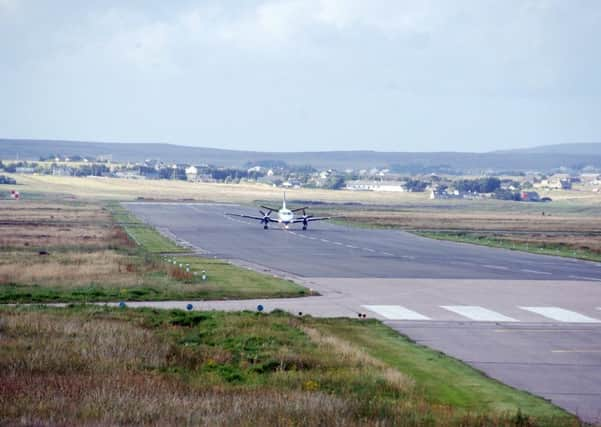Scottish councils call for a halt on centralisation of air traffic control


The authorities – Comhairle nan Eilean Siar, Shetland and Orkney Islands Councils – want a moratorium on implementation of the proposed changes at Stornoway, Sumburgh, Kirkwall and Benbecula airports until HIAL has conducted an ‘Islands Communities Impact Assessment’ under the terms of the Islands Act amoid fears that skilled jobs could be lost from the islands.
A spokesperson for the Island Councils said: “All three Island Councils are of the view that, in line with legislation under the Islands Act, a full Islands Communities Impact Assessment should be carried out before any more work is carried out on the centralisation of ATC services.
Advertisement
Hide AdAdvertisement
Hide Ad“Not only would the centralisation of these services lose skilled Island jobs, they could also curtail the future development of the island Airports.
“Centralisation of services and jobs is entirely contrary to what island authorities have been working towards over the past few years in terms of growing Island economies.
“We believe”, the statement concluded, “there are other options which should be more fully explored, such as those that HIAL’s own consultants previously highlighted. In the meantime it is imperative that the centralisation process is halted to assess the true impact this will have on our Island communities”.
HIAL is a public company wholly owned by Scottish Ministers, and in a statement issued in response to the Island councils’ call, a Transport Scotland spokesperson said that the ‘modernisation’ of Air Traffic Control was “essential to meet forthcoming regulatory requirements”.
Advertisement
Hide AdAdvertisement
Hide Ad“HIAL agreed in principle two years ago”, the statement continued, “following an in-depth study, to create a central surveillance centre as part of a wider programme designed to ensure remote and rural communities continue to benefit from sustainable air services in the future.
“We recognise”, Transport Scotland concluded, “that this is a major change for the organisation. HIAL has engaged extensively with staff, local authorities and other stakeholders throughout the process and we expect them to continue to engage and consult as it implements the programme.”
In a recent debate on HIAL’s plans in the Scottish Parliament, The Cabinet Secretary for Transport, Infrastructure and Connectivity, Michael Matheson MSP, defended HIAL’s decision stating that “doing nothing” to modernise the ATC systems was not an option “because it would lead to the eventual cessation of air services in the Highlands and Islands”.
Mr Matheson stated: “The current practice of HIAL will not meet future operational or regulatory requirements, the current infrastructure is not suited to modern working and the current arrangements have weaknesses that ensure that there are challenges in terms of the reliability and sustainability of services, going forward.”
Advertisement
Hide AdAdvertisement
Hide AdMr Matheson also confirmed that HIAL would be conducting an impact assessment under the terms of the Islands Act and said that HIAL “has acknowledged that it will review its approach depending on the outcome of an island impact assessment”.